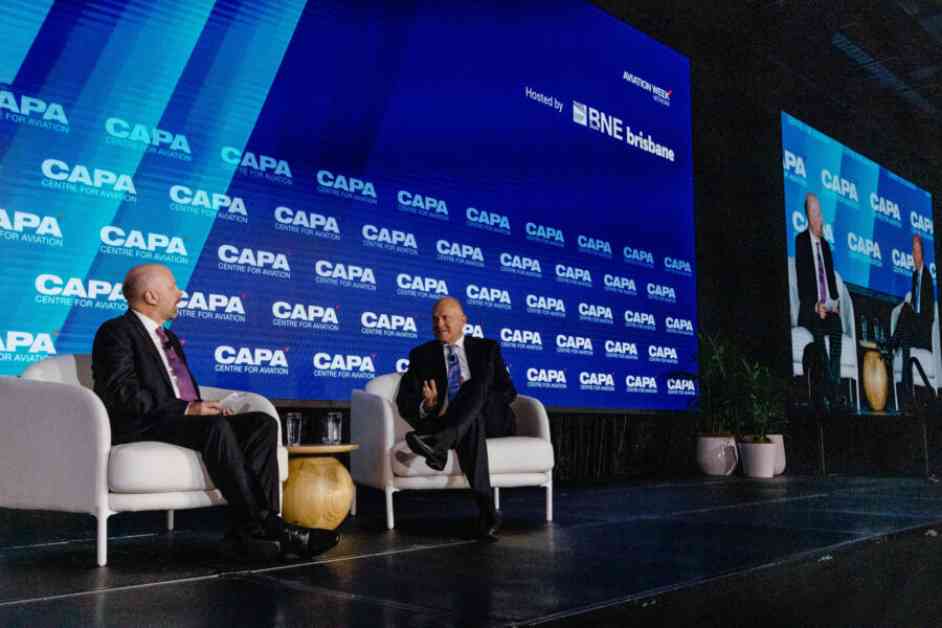The CAPA Airline Leader Summit Australia Pacific kicked off in Brisbane with a plethora of key highlights and insights that shed light on the current challenges and opportunities in the aviation industry. From delays in new aircraft delivery to sustainable fuel initiatives, the discussions among the hundreds of delegates in attendance covered a wide range of topics that are shaping the future of air travel in the region.
Sustainable Aviation Fuel: A Path to a Greener Future
One of the most pressing issues discussed at the summit was the development of sustainable aviation fuel (SAF) in Australia. Fiona Messent, Qantas executive manager of climate change, emphasized the need for government and industry collaboration to drive the growth of the SAF sector. She highlighted the UK Government’s successful policy approach in promoting the use of SAF as a model that Australia could emulate to accelerate the adoption of sustainable fuels.
While Australia has the potential to become a major player in the production of SAF due to its abundant feedstock resources, the country lags behind in establishing a robust SAF industry. With only two small sustainable fuel plants currently in operation, there is a significant opportunity for Australia to seize a leadership position in this burgeoning sector.
Stephen Forshaw, chief representative for Airbus in Australia, NZ & Pacific, urged the country to take a bold stance in developing its SAF capabilities, envisioning Australia as a potential SAF “superpower.” He stressed the economic benefits of a thriving SAF industry, including fuel security, job creation, and a substantial contribution to the GDP by 2040.
Challenges in the South Pacific: Connectivity and Logistics
David Tohi, secretary general of the Association of South Pacific Airlines (ASPA), highlighted the unique challenges faced by airlines operating in the South Pacific region. With vast distances, small populations, and long thin routes characterizing the area, connectivity and logistics remain major obstacles for carriers in the region.
Despite the region’s successful navigation through the Covid pandemic, maintaining their presence while major airlines cut routes to the Pacific, Tohi underscored the importance of addressing the connectivity and infrastructure issues that hinder the growth of airlines in the South Pacific. He emphasized the need for improved government policies, infrastructure investment, and a skilled workforce to support the development of the aviation industry in the region.
Global Supply Chain Issues: The Importance of Local MRO Industry
Campbell Wilson, CEO of Air India, emphasized the significance of developing a local maintenance, repair, and operations (MRO) industry to strengthen the global supply chain. He highlighted the benefits of a faster repair cycle in enhancing supply chain resilience and efficiency, underscoring the importance of investing in pilot training facilities to support the industry’s growth.
Wilson’s remarks echoed the sentiments of industry leaders who recognize the critical role of a robust MRO sector in ensuring the smooth operation of airlines and the timely maintenance of aircraft. By prioritizing the development of local MRO capabilities, airlines can enhance their operational efficiency and reduce dependency on external suppliers, thereby bolstering the resilience of the global supply chain.
In conclusion, the CAPA Airline Leader Summit Australia Pacific provided a platform for industry stakeholders to exchange insights, address challenges, and explore opportunities for collaboration in driving the future of aviation in the region. With a focus on sustainable fuel initiatives, connectivity in the South Pacific, and the importance of a local MRO industry, the summit highlighted key areas that require attention and investment to ensure the continued growth and resilience of the aviation sector in Australia and the Pacific region.

